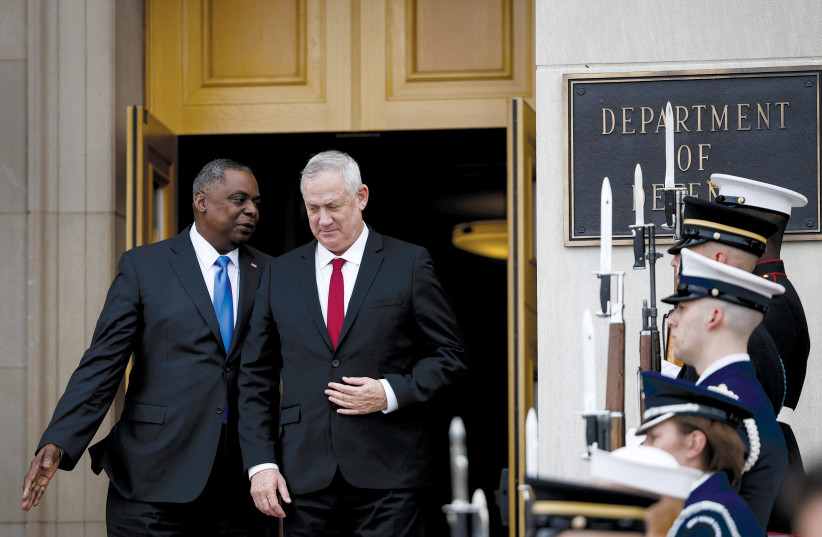Recent reports that Israel may have to wait years before receiving new refueling aircraft are part of a wider pattern indicating how the Jewish state has dropped the ball when it comes to strategic long-term planning.
The KC-46A is an advanced refueling aircraft made in the United States by Boeing and is supposed to eventually replace Israel’s aging fleet of 707 refuelers, which are essential for long-range missions.
The aircraft has a range of over 11,000 km. and Israel may eventually acquire up to eight. So far, a deal signed earlier this year to purchase two planes from the United States. This put it further down the line in orders for the KC-46A, behind the US Air Force, Japan and possibly other countries.
According to the reports, Israel could wait until 2023 or 2024 until it receives the aircraft.
News that delivery of the refuelers may be delayed and that the US won’t speed up their arrival was released while Defense Minister Benny Gantz was in Washington earlier this month. The timing of those reports was interesting, but even if all is well with the KC-46 deal, procurement takes time, regardless of when the first planes arrive.

This is bad news when it comes to advanced defense plans – and it isn’t just about tensions with Iran over its nuclear program.
Why does defense procurement take so long? First of all, Israel must first figure out where the funds will come from. That element has been particularly thorny because the country has lacked a budget for years due to former prime minister Benjamin Netanyahu’s political shenanigans.
In addition, Israel has a Memorandum of Understanding with the US for Foreign Military Financing to the tune of $3.8 billion a year. When you seek to buy planes or helicopters, like the heavy-lift helicopters Israel also needs, it takes time to sign the deal, get approvals from the US State Department, plan the lot numbers, take delivery and train air and ground crews.
So why did it take so long to decide to buy the CH-53K helicopters and the KC-46A refuelers, deals worth some $5 billion or more? When a country is considering a multi-billion dollar acquisition plan, it needs to think a decade or two into the future. But Israel failed to plan accordingly – and while it talked tough on Iran, the planning to put its money where its mouth is, was off.
Israel’s culture is one of innovation and creativity. While that mentality is great for short-term success, long-term plans need a stable vision. It’s not enough to just innovate; we need better strategic planning.
The IDF hinted at a desire to think more strategically when it established a special directorate a few years ago for “Third Circle” threats, which is a reference to Iran. The directorate includes a “Depth Corps” for operations far beyond Israel’s borders.
Israel also had five-year plans like Momentum that were supposed to transform the IDF for future warfare. This included the multi-dimensional unit and more digitization, but it all got sidelined with the failure to pass a proper state budget for three years.
Acquiring large, expensive foreign platforms, like the KC-46, happens much more slowly, because Israel must rely on foreign suppliers. To its credit, Jerusalem has unprecedented cooperation these days with the US defense industry. Israeli companies like Rafael Advanced Defense Systems partner with American companies such as Raytheon. The Jewish state also enjoys support in Congress and unprecedented cooperation with Washington.
Israel and the US are looking at a variety of new emerging threats, such as drones, and how they can counter them. Israel is also doing unprecedented levels of training and working with CENTCOM and new friends in the Gulf. But that isn’t enough.
We need to make sure that the IDF doesn’t have a supply problem in the future, whether that means precision-guided munitions, Iron Dome interceptors and other pieces of hardware, or large aircraft and heavy-lift helicopters.
Israel has dropped the ball for a few years. It is now incumbent on the Defense Ministry and the government to ensure that it does not happen again.
